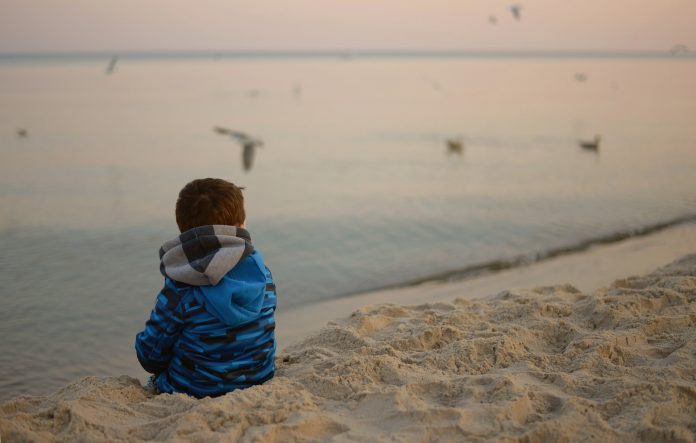I recently read an article in the Lancet on loneliness (1). Loneliness is not new news, but the condition has now assumed the status of a disease, and so I was wondering how we treat it, and if there could be a cure …
What is loneliness?
There are no definitions of loneliness that have achieved widespread consensus.
One definition of loneliness is: “A state of solitude or being alone”. But loneliness is not necessarily about being alone. Instead, “it is the perception of being alone and isolated that matters most” and is “a state of mind”. (2)
“A subjective, negative feeling related to deficient social relations”, “A feeling of disconnectedness or isolation”, “A feeling of depression resulting from being alone”, “The state of feeling sad or dejected as a result of lack of companionship or being separated from others” etc., are other ways to define loneliness. (2),(3)
The key is that loneliness is a subjective experience, a feeling state.
Loneliness may be subjective, but it has definite physical and mental effects on us.
Loneliness is reported to be more dangerous than smoking; it may be associated with depression in old age and a high degree of loneliness precipitates suicidal ideation and para-suicide, Alzheimer’s disease, and other dementias, and adversely affects the immune and cardio-vascular system. It is a generally accepted opinion that loneliness results in a decline of well-being and has an adverse effect on physical, mental, emotional and spiritual health. (2)
Loneliness is not just a disease of old age, and people from all ages can suffer with it. In fact, our young people are feeling increasingly lonely, even though they spend so much time apparently connecting with other people through the use of social media. What is happening here? We see people walking down the street so engrossed in their phones they are seemingly oblivious to the actual people all around them. We see couples sitting down to dinner who are facing each other, but looking only at their phones. Families may have dinner together, but rather than sitting around the table in conversation, they all sit facing the TV. We now have phones on our wrists, as well as mobile phones, laptops and any number of other devices that connect us with the world and yet we can still feel alone. Our connections are becoming more fleeting and superficial, rather than deep and full of meaning.
Loneliness is not the same as being alone.
I have been in controlling, abusive relationships in the past and have never felt more isolated and alone, for I did not feel able to fully be myself with the other person. And when I am truly with myself, even if I am by myself, I never feel alone, for I am connected with everyone and everything in the universe.
We are always in relationship with everyone and everything around us, whether we are with other people or not, and that relationship starts with ourselves. We can only relate to other people as deeply as we can relate to ourselves, we can only care about others as much as we care about ourselves, we can only love others as much as we love ourselves. We can only feel truly connected with ourselves and all others, equally so, when we are connected with our Soul. Our Soul is One. We are all One when we are with our Soul. But if we separate from our Soul, as we did aeons ago in our spirit’s quest for individuality, then we feel isolated, separate and alone. The loneliness we feel is at heart this separation from our Soul.
Being alone can be a time of deepening our understanding of and connection with ourselves, and our relationship with our Soul. But we come from Oneness, from brotherhood and are not designed to live entirely alone, but in community with each other and it is a dis-ease in our bodies and our beings if, in reaction to being hurt, we isolate ourselves from other people and try and go it alone, to try and avoid being hurt again. The irony is that this is the greatest hurt of all, to cut ourselves off from that which sustains us the most, our connection with others. For if we shut down to or cut ourselves off from even one person, we shut down to everyone. And that hurts. Shutting down and not expressing love, not letting it out, means we are no longer able to receive it in full, and if we can’t feel loved, we can feel lonely.
So how can we reverse this increasing trend towards loneliness?
Many people feel lonely, even if they are in relationships, marriages, or have families or successful careers. Success is no guarantee against loneliness, as evidenced by the saying: It is lonely at the top. Age is no barrier either; children can be lonely in their families or at school, teenagers often feel alone and isolated, and our increasingly elderly population say that one of the hardest things about getting old is having loved ones sicken and die around them and feeling increasingly isolated and alone.
Simple human connection is key. Bringing people together is vital. And there are simple practical ways to do this as shown by studies that have placed students and older people together in group housing, to the mutual benefit of both.(4) We also need to spend more time simply being with each other and less time ‘connecting’ through devices. Looking into each other’s eyes, truly meeting each other as we go about our daily lives, sharing a meal and conversation together, opening up and sharing ourselves with others and letting them get to know us and feel how much we love and care about them.
But at the heart of all loneliness is disconnection; and the true cure is our re-connection to our Soul. No amount of external support can substitute for this, and there is nothing in this world greater than feeling at one with the Oneness we are and come from. In Oneness, we are never alone.
References:
- https://www.thelancet.com/journals/lancet/article/PIIS0140-6736(19)32533-4/fulltext?dgcid=raven_jbs_etoc_email
- https://www.ncbi.nlm.nih.gov/pmc/articles/PMC3890922/
- https://www.definitions.net/definition/loneliness
- http://theconversation.com/heres-why-some-dutch-university-students-are-living-in-nursing-homes-68253










Anne, it was an absolute joy to re-connect with you again and spend some quality time, shared with my daughter and your beautiful team members. I loved your latest eloquent insight of lonliness expressed so vividly in your writing. Personally, so much of your underpinning message resonates with me. I too have lived experience as do my precious children, my cherished family and friends. I acknowledge the feelings and human sufferings that I observe on a daily basis in my personal life and my vocational life relating to lonliness, dis-connectedness and “dis-ease”. Thank you for highlighting a range of important and positive ways to provoke individual’s and community’s awareness of the dilemna of lonliness.
I look forward to your next story Anne. Blessings to you.
Thank you Carol. It was lovely to be with you and your beautiful daughter and to feel how time means nothing when there is love… it may be many years since we were at school together but in essence, we are still the same… ❤️